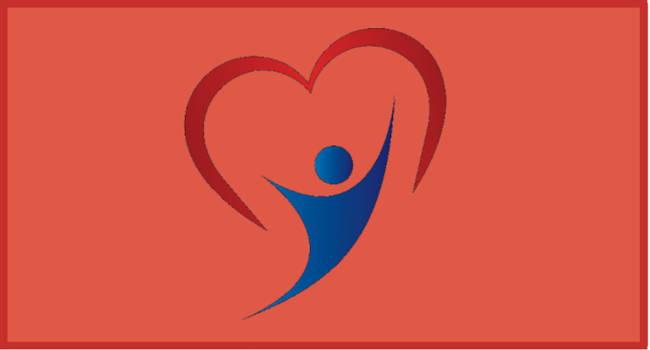How to Establish or Grow Your Practice with Heart-Centered Hypnotherapy
How to Establish or Grow Your Practice with Heart-Centered Hypnotherapy

Most therapists, counselors, social workers, teachers and others in the helping professions, were drawn to our profession because we wanted to help or perhaps we even dreamed of healing people . . .
. . . but what happens when fewer and fewer people seek your help or are choosing medication instead of therapy?
With the changing economy and people having busier lives, a lot of practices may have seen a decline in clients coming in on a regular basis. Partially, this trend began with the insurance companies coining the term short term therapy, wanting to save money and calling for six-session “band-aid therapy.”
Many therapists began feeling the limitations of this short-term approach, especially when working with personality disordered folks, addictions, and major depression or anxiety disorders. It was an overwhelming challenge to make a difference in the lives of these clients in just a month or two! And just talking to them!
It is clear that now therapists need to become well-educated in marketing their practices in order to attract a continual flow of new clients since the previous ones need to be healed in a month! OR therapists must have something that is quicker, deeper and brings healing sooner, to a wider variety of clients.
Even graduate schools have started to add marketing ideas to the counseling and clinical psychology curriculum. (Read our web guide for comprehensive strategies for marketing for therapists.)
But many seasoned practitioners in the field now, perhaps like yourself, don’t have that advantage. Also newer, younger practitioners don’t always know how to start or develop a practice. The sad part is that many folks take what seems to be the easy way out, by working for an agency that provides the clients for them. The problem with this choice is that Master’s level therapists often end up at agencies making less than the secretaries, and go home exhausted at night. Therapists often feel unfulfilled since much of their caseload is made up of patients that are the most difficult to treat, frequently limited to a 45-50 minute session, and overwhelmed with paperwork for the agency or the insurance companies.
Meanwhile...
Meanwhile, other powerful forces, such as the drug companies, are competing with psychotherapy.
In 2010, the American Psychological Association put out an article entitled, “Where Has All the Psychotherapy Gone?” and the results now confirm current trends. It revealed how fewer and fewer patients, instead of seeing a therapist, were opting for pharmaceutical treatments alone. Others are opting for coaching.
According to a 2008 study, 57.4% of patients, particularly those with anxiety, depression, and childhood-onset disorders, received medication only – with no psychotherapeutic interventions. If you remember correctly, when SSRIs first came out, they were to be taken only for six months along with psychotherapy. When family doctors, who in general know little about therapy, began prescribing these drugs, therapy got lost in the shuffle. The therapy requirement was ignored and the drugs were given to a wide range of patients and prescribed long term.
Another recent study with veterans found that a majority preferred self-administered and more portable interventions (like MP3 downloads of guided imagery) rather than an office visit to receive one-on-one treatment. They also reported so much shame associated with seeing “a shrink” that most just asked for more drugs or self-medicated with alcohol, marijuana, cocaine and more. Also there is an increasingly high suicide rate among recent veterans who have fought in the Middle East wars. And the VA is so overwhelmed and understaffed that when a vet finally does get an appointment, it may already be too late (suicide) or they are again just prescribed drugs without any hope of therapy. The VA only employs a nationwide total of 22,000 mental health specialists to treat the 8.6 million vets and their families. Hundreds of thousands of disabled, suicidal and depressed veterans with serious PTSD symptoms are left waiting months or even years for treatment. These folks and their families need intensive therapy which is just not being adequately addressed by the VA.
And some people in need of treatment are skipping appointments with licensed practitioners altogether and opting for coaching that can be done over the phone or via internet without any real face to face psychotherapeutic treatment for severe PTSD. Younger vets tend to prefer texting rather than be seen in person, due to the culture of shame in the armed services.
(Related Blog Post: Treating PTSD with Hypnotherapy)
Heart-Centered Hypnotherapy Heals Clients Faster and May Reduce the Need for Medication
So where exactly does that leave us? Heart-Centered Hypnotherapy is a powerful solution to these problems for the patients as well as for the therapists. Heart-Centered Hypnotherapy treats the client or patient on the deepest psychological levels in the shortest amount of time. Most cognitive or talk therapies work mainly with the conscious mind. The conscious mind is only 10% of the mind and may help the patient to understand what the problem is, but does not treat it at the root. Treatment can most effectively happen when we learn to work with the subconscious mind, and can get down to the source of the problem. Cognitive therapies, working in the conscious mind, would be similar to having your plumbing system overflowing, and just putting a lid over it. That may stop the overflow for a while, but certainly does not fix the deeper problem. Many of our clients find that through hypnotherapy they can lower their use of medications and increase their ability to function in their families and communities.
Heart-Centered Hypnotherapy Increases Your Practice and Thus Your Income
For therapists, hypnotherapy is a godsend. People are now recognizing that hypnotherapy is a valid form of treatment and many insurance companies are paying for it. Also, because you can achieve results so quickly, many people are happy to pay out-of-pocket and not bother with insurance. Heart-Centered Hypnotherapy will help your practice to grow exponentially! And you can begin to market it on your website to attract the growing number of clients who really are searching for healing. People go online and increasingly use the search engines to find key words like hypnosis, hypnotherapy and Heart-Centered Hypnotherapy. Be the first in your community to increase your practice by offering Heart-Centered-Hypnotherapy.
{{cta('3b407751-b62e-45e3-bc8f-70747c68aa02','justifycenter')}}








